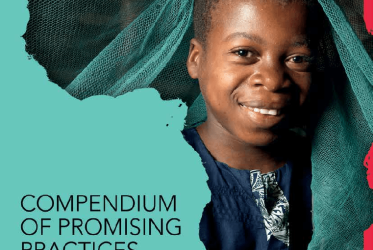All were amazed and perplexed, saying to one another,
“What does this mean?”
(Acts 2:12)
The days following the resurrection must have been mystifying and frightening to the followers of Jesus. Some of them had actually seen the risen Christ – in the upper room, on the road to Emmaus, even touched his wounds and shared a piece of fish. Now they found themselves all together in a room, waiting. It can’t have been easy for them, crowded into a small space, wondering what it was that they were waiting for and what was going to be expected of them now. Then came the wind, the tongues of fire and the speaking of many languages.
Watching from the outside in, the crowd on the street asked the question, “What does this mean?” But even some of the followers of Jesus, who had seen many miracles and had heard the Son of God first-hand, may have echoed that question, “What does this mean?”
As we read the account of the first Pentecost we, too, find ourselves asking the question “What does this mean?” Those who find themselves in the midst of political or financial crises and violence, occupation, war or conflict ask, “What does this mean?” Those who are persecuted because of their conviction and faith ask, “What does this mean?” Those who have become refugees or who have suffered natural disasters, including floods and drought, earthquakes and tsunamis ask, “What does this mean?” Those suffering from HIV/AIDS or struggling to provide food, clean water, housing and education for their families ask, “What does this mean?” Those who suffer the pain of the untimely loss of a loved one ask, “What does this mean?” Those whose homelands are facing extinction because of climate change ask, “What does this mean?”
As we reflect on the day of Pentecost, we realize that in this first act of the Holy Spirit, the diversity of God’s people is honoured. The followers do not come from the same nations or speak the same language. They don’t agree on how to interpret what they have experienced or seen. But they do agree on the mighty acts of God and the power of God to transform them and their world.
Just as the power of the Holy Spirit rested upon the faithful then, so it comes to us now. The living presence of Jesus Christ continues the saving work of mending the brokenness of the world and comes to breathe courage, hope and the transformative power of love into us.
May the same Holy Spirit of that first Pentecost fill us once more so that we, like those in that room that day, may be filled with the love of God and a new understanding of each other. And may we be transformed so that we may be enabled to proclaim the mighty acts of God to the world today!
The Presidents of the World Council of Churches
- Archbishop Dr Anastasios of Tirana and All Albania, Orthodox Autocephalous Church of Albania
- Mr John Taroanui Doom, Maohi Protestant Church (French Polynesia)
- Rev. Dr Simon Dossou, Protestant Methodist Church of Benin
- Rev. Dr Soritua Nababan, Protestant Christian Batak Church (Indonesia)
- Rev. Dr Ofelia Ortega, Presbyterian-Reformed Church in Cuba
- Patriarch Abune Paulos, Ethiopian Orthodox Tewahedo Church
- Rev. Dr Bernice Powell Jackson, United Church of Christ (USA)
- Dr Mary Tanner, Church of England




